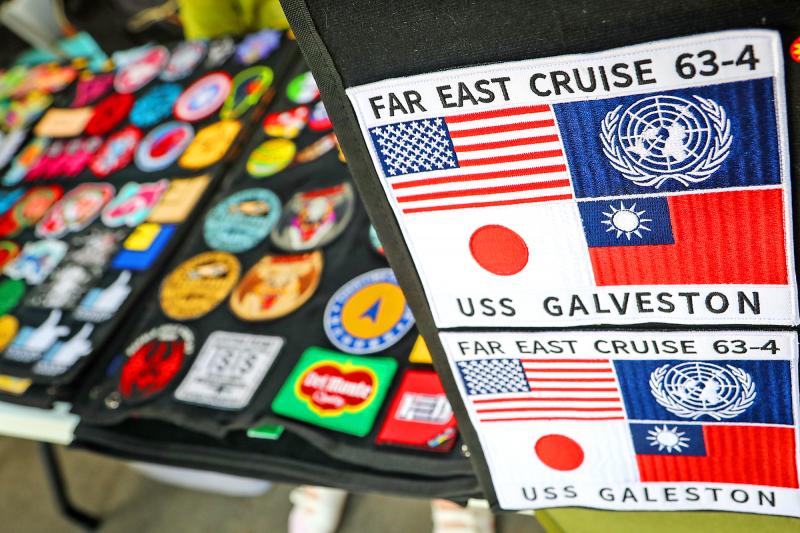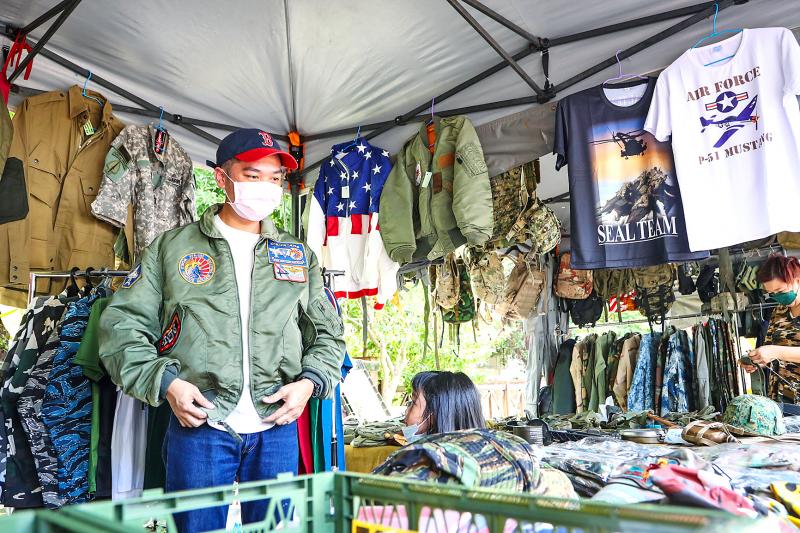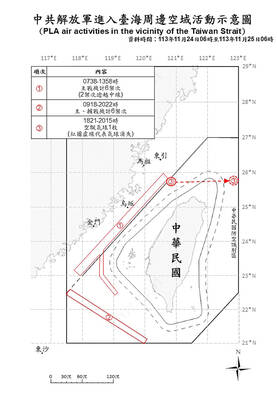Top Gun: Maverick, the sequel to Tom Cruise’s 1986 box office hit about jet pilots, had generated NT$453 million (US$15.24 million) at the box office in Taiwan as of Friday, making it the US actor’s highest-grossing film in the domestic market.
The film, which opened at local theaters on May 25, surpassed Cruise’s record-grossing 2018 movie Mission: Impossible — Fallout, which earned NT$447 million, the film’s distributor said yesterday.
Top Gun: Maverick is to be shown in IMAX and 4DX theaters this week, said VieShow Cinemas, a movie distribution company and one of the nation’s largest theater chains.

Photo: CNA
IMDb’s Box Office Mojo showed that the action-drama film has so far grossed more than US$918 million globally since its worldwide debut late last month.
In 2019, a trailer was released showing a scene in which Cruise wears the iconic bomber jacket his character, Captain Pete “Maverick” Mitchell, donned in Top Gun.
In the first film, the back of the jacket included a patch that displayed the flags of the Republic of China (ROC) and Japan, which were meant to commemorate the USS Galveston’s tour of duty with the US Navy’s Seventh Fleet from 1963 to 1964, when it performed missions off Japan and Taiwan.

Photo: CNA
In the 2019 trailer, both flags were replaced with generic symbols with colors similar to the flags on the original patch.
Foreign media reports at the time said that the flags were allegedly removed to appease Chinese censors, and also because Chinese tech giant Tencent Holdings was initially set to back the US$170 million film.
However, the Wall Street Journal late last month reported that Tencent had pulled out over concerns that supporting a film celebrating the US military could anger Beijing, and both flags were subsequently restored to the jacket in the film’s official release.

A decision to describe a Chinese Ministry of Foreign Affairs statement on Singapore’s Taiwan policy as “erroneous” was made because the city-state has its own “one China policy” and has not followed Beijing’s “one China principle,” Deputy Minister of Foreign Affairs Tien Chung-kwang (田中光) said yesterday. It has been a longstanding practice for the People’s Republic of China (PRC) to speak on other countries’ behalf concerning Taiwan, Tien said. The latest example was a statement issued by the PRC after a meeting between Singaporean Prime Minister Lawrence Wong (黃循財) and Chinese President Xi Jinping (習近平) on the sidelines of the APEC summit

Taiwan’s passport ranked 34th in the world, with access to 141 visa-free destinations, according to the latest update to the Henley Passport Index released today. The index put together by Henley & Partners ranks 199 passports globally based on the number of destinations holders can access without a visa out of 227, and is updated monthly. The 141 visa-free destinations for Taiwanese passport holders are a slight decrease from last year, when holders had access to 145 destinations. Botswana and Columbia are among the countries that have recently ended visa-free status for Taiwanese after “bowing to pressure from the Chinese government,” the Ministry

HEALTHCARE: Following a 2022 Constitutional Court ruling, Taiwanese traveling overseas for six months would no longer be able to suspend their insurance Measures allowing people to suspend National Health Insurance (NHI) services if they plan to leave the country for six months would be abolished starting Dec. 23, NHIA Director-General Shih Chung-liang (石崇良) said yesterday. The decision followed the Constitutional Court’s ruling in 2022 that the regulation was unconstitutional and that it would invalidate the regulation automatically unless the NHIA amended it to conform with the Constitution. The agency would amend the regulations to remove the articles and sections that allow the suspension of NHI services, and also introduce provisional clauses for those who suspended their NHI services before Dec. 23, Shih said. According to

‘GRAY ZONE’ TACTICS: China continues to build up its military capacity while regularly deploying jets and warships around Taiwan, with the latest balloon spotted on Sunday The US is drawing up contingency plans for military deployments in Japan and the Philippines in case of a Taiwan emergency, Japan’s Kyodo news agency reported. They would be incorporated in a first joint operation plan to be formulated in December, Kyodo reported late on Sunday, citing sources familiar with Japan-US relations. A US Marine Corps regiment that possesses High Mobility Artillery Rocket Systems — a light multiple rocket launcher — would be deployed along the Nansei Island chain stretching from Kyushu to Yonaguni near Taiwan, Kyodo said. According to US military guidelines for dispatching marines in small formations to several locations,